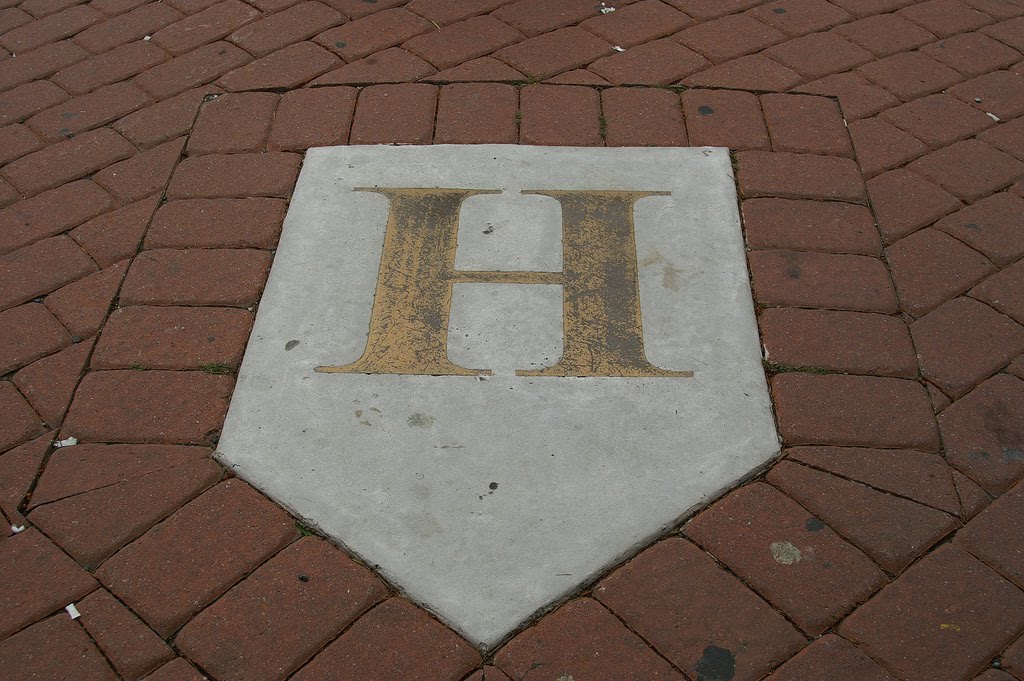 Talk about a half-assed job. What good does it do to plow out the handicapped parking space at the train station -- actually, plow out room for one car over two parking spaces -- when it does not leave enough room for the occupants of the car to get out after parking?
Talk about a half-assed job. What good does it do to plow out the handicapped parking space at the train station -- actually, plow out room for one car over two parking spaces -- when it does not leave enough room for the occupants of the car to get out after parking?The snow has turned to ice, thanks to a coating of rain yesterday afternoon and evening. Anyone needing to park in those spaces at the Clifton train station presumably has a reason to, but it can't help them much if, once they park, they exit the car onto a sheet of ice. The camera-phone photo gives you the gist of the situation.
Seriously -- how hard would it have been to back up the pickup truck and move forward once more to clear our a space twice as big? A third pass would've cleared the entire two spaces. In about 42 seconds. Nice work, guys.
I get more annoyed at seeing cops driving while talking on their cell phones or the dozens of cars that pass me as I stand in the crosswalk on my way to the train each evening. Yielding to pedestrians is a law in New Jersey. If a cop stood with my on the corner, he could stop each car and cite the drivers for failing to yield. He'd also get half of them on the cell phone charge, too.
I've always been sensitive to the pedestrian law. I'm not sure why, but I'm drawn to it. I find it courteous and helpful. I enjoy walking to the train everyday, a six-minute walk (briskly; eight to 10 minutes at a more leisurely pace) and I enjoyed walking from the house I grew up in to the pharmacy or the ballfield or the church down the street. Princeton had the law on its books before the state adopted it -- or at least before the state forced the rest of the towns to enforce it. And it worked well in Maine, where on the busiest tourist days in Wiscasset or Camden, you could be sure that anyone with a Vacationland license plate would quickly apply the brakes once you set one foot off the curb in between the white lines. I considered those towns to be more sophisticated than most others for that reason. (I suppose one of the nation's pre-eminent universities helped Princeton's case, as well.)
The summer after I graduated from college, I was in the car with my mom when she stopped to let a woman pushing a baby carriage cross the street in my hometown. We were downtown in our small town, not 100 yards from the police station at a rather busy intersection with no traffic light (one has since been installed). An impatient prick in a pickup truck decided we were waiting to turn without using our turn signal and began to pass us (I don't recall whether it was on the right or left). The pickup driver slammed on his brakes just as he was about to pull past us when he saw the woman, who he very nearly hit.
Inspired, I wrote a letter to our mayor and police chief. Sometime before this, I had also received a ticket because I'd parked at our hometown train station at 9:20 a.m., 10 minutes before I was allowed to without a pass. I paid the $20 fine, but also pointed out that if the town put a police officer at either of the two intersections downtown, he could cite four or five cars per pedestrian in a very small time frame. And the failing to yield penalty was something like $75. But maybe our town was just filled with antisocial cops who didn't like confrontation and preferred to ticket empty cars than rack up revenues from oblivious drivers.
The mayor called the house to ask me to come in to meet with her, I believe, but I sent the letter just before departing on my cross-country trip and her call came while I was somewhere south and west of the Smoky Mountains.
Eight years later, I did sit down in her office, but that was with Casey when we met with her to discuss our wedding. I should've took that time to discuss the pedestrian issue.

No comments:
Post a Comment